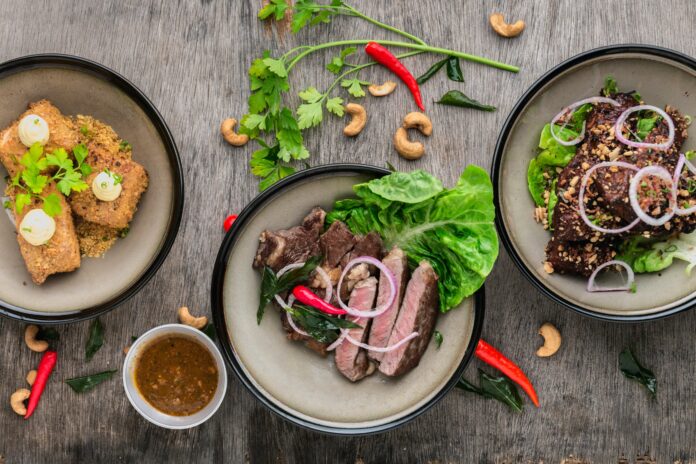
ARE YOU as confused as everyone else by conflicting reports from so-called experts, varying wilding from one day to the next, telling us which foods to worship and which to shun? Of course, the endless array of choices at our disposal at the supermarket don’t help.
So many products have been packaged to get our attention, from paleo to gluten-free, vegan to ketogenic, low GI, and everything in between. So what can we do to make better-informed food decisions?
As a rule of thumb, I always say simplify, simplify, simplify. Simple.
What ‘real’ foods can you include in your diet? Maybe the foods you eat originally came from natural ingredients – like oats or apples. But add in dehydrated, ground, additional flavourings and preservatives – along with other not-so-natural ingredients – and it’s a different story.
In essence, packaged, processed foods have invariably had their basic structure altered in some way. Even if that’s only to sprinkle some grey salt on top.
Surely you can do that yourself without paying a premium for the trouble saved?
Try to strip away the jargon and focus on the key components you need to include in a healthy, balanced diet.
These would be good fats, proteins, probiotics, fibre, vitamins, minerals and trace elements. Anything else can just be distracting. If you have a suitable balance of optimum foods in your diet, you don’t need to concern yourself with calorie-counting and salt intake.
Think of it as self-regulating. Making your own stocks and broths means you can control the salt content in all the sauces, curries, soups, and stews you make with them.
You need quite an amount, more than you might think, of good fats in your diet if you are to digest dense foods like lentils, beans, and vegetables. Just try to choose the best fats you can.
Have you access to organic butter or clarified butter? Or cold-pressed olive oil, to be used raw? Maybe a little coconut fat as an alternative for cooking.
The undue panic about saturated fats really shows a complete misunderstanding about how the body utilises fats to unlock so many other processes. The shorter chain fatty acids are especially useful as they do not require any complex stages, such as emulsification, in order to be digested. As a result, they are instantly available for the body to produce energy. This has been known for the longest time, with clarified butter being used in certain parts of India for centuries as the ideal partner to break down and absorb the lentils and pulses which make up such a significant part of that cuisine.
Did you know that all-important calcium, which we hear so much about, cannot be absorbed properly without saturated fats? Another reason not to drink low-fat and no-fat milks and yoghurts.
But it’s important to remember that it’s not just about consuming fats. You also want to ensure your daily diet includes plenty vegetables. Nine or more would be nice. Have at least one portion at every meal.
Can you add some spinach, courgette, or kale to your omelette in the mornings? Add all manner of vegetables and fresh herbs to your soup at lunchtime and have plenty steamed or roasted vegetables with your evening meal. All the better if you can add in some fermented vegetables. These provide the fuel for the good bacteria in your gut to thrive. Fermented foods are a power house of enzymes, of which we simply don’t eat enough.
Vegetables are also an excellent source of soluble and insoluble fibres, which provide the prebiotics so beloved of good bacteria, but also essential to keeping cardiovascular health in optimum condition.
We have evolved to thrive on such foods and no pill, supplement, or tonic has come close to achieving the results that an unprocessed, vital diet does.
In terms of helping to provide the elastic, durable cell walls we need for the healthy exchange of waste out of the cells and nutrients into the cells, fats also come to the fore. Don’t overlook the important role organic eggs play here. They provide valuable cholesterol, as well as lecithin, but are also rich in collagen, helping to give cells a flexible, resilient structure.
None of this will be news to traditional diets, who have always had more than their share of fats, when available, plant- and animal-based proteins, relatively little fruit when in season, and next to no processed foods, because they simply didn’t exist.
Our modern diet has devolved to such an extent in the last number of decades that evolution couldn’t possibly keep up. Hence we see substantial spikes in autoimmune issues and neurodegenerative problems.
Reverse that trend. Simplify your diet and see how your health responds to eating real food!









